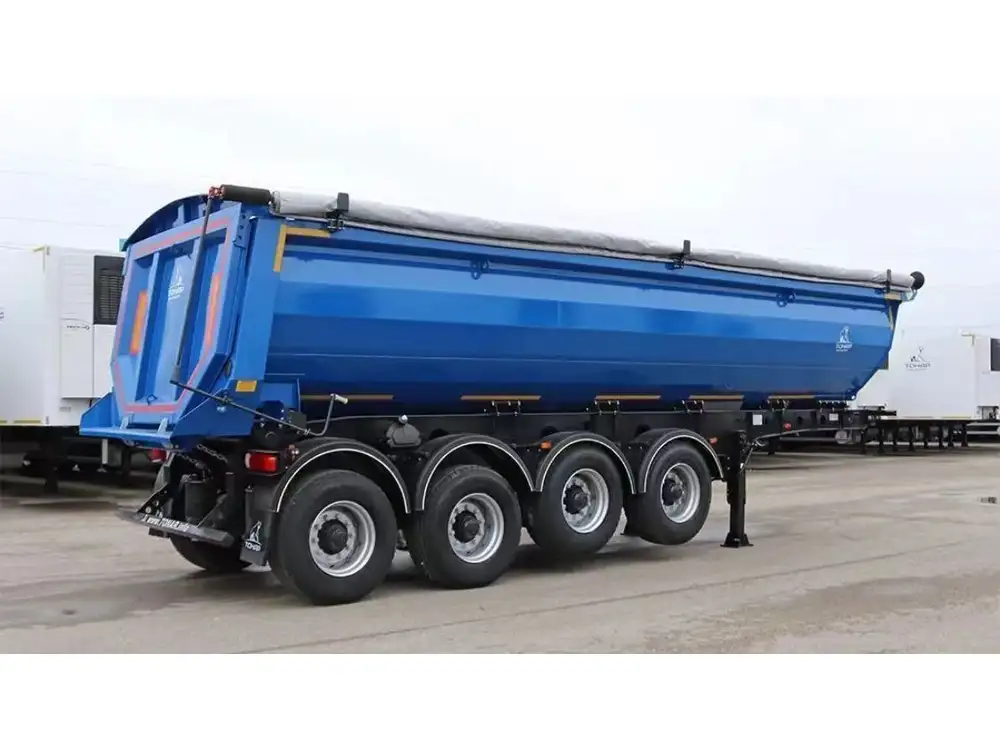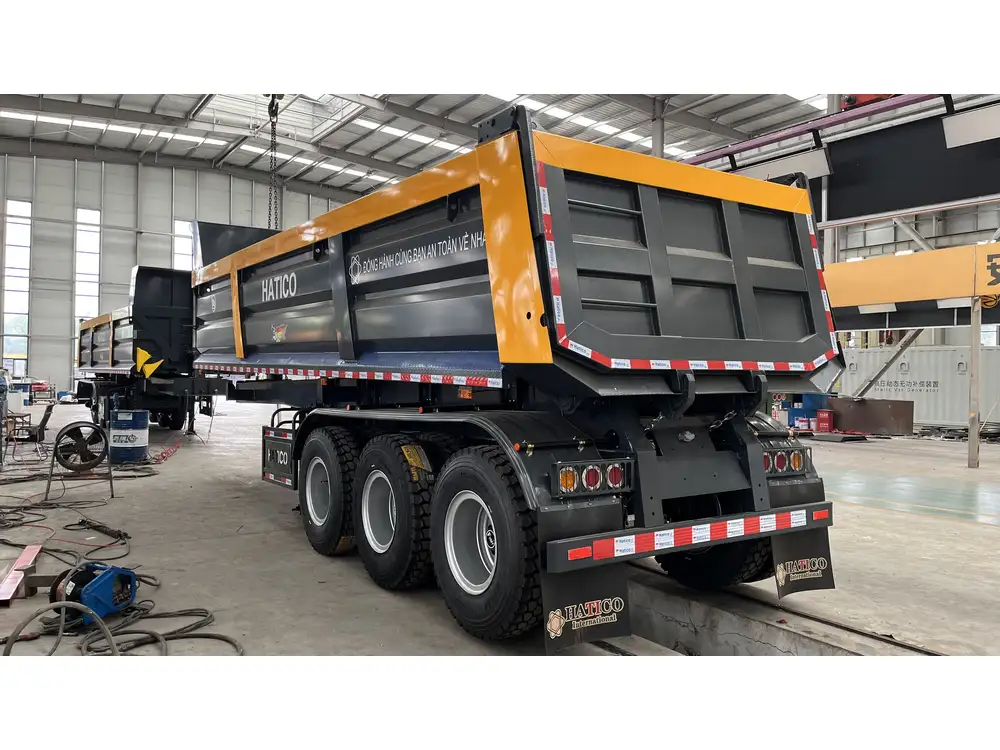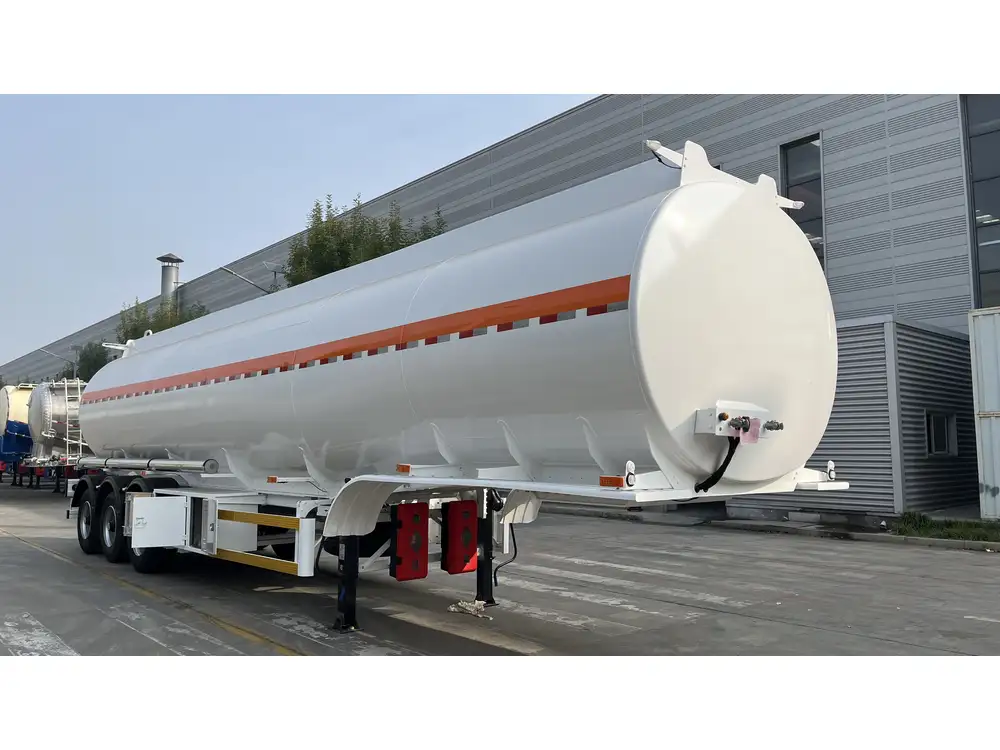When it comes to purchasing a 14x dump trailer, the costs can vary significantly based on a multitude of factors including design, manufacturer, capacity, and additional features. In this guide, we explore everything you need to know about the financial and practical considerations of acquiring a 14x dump trailer, helping you make an informed decision that aligns both with your budget and your needs.
Understanding Dump Trailers: An Overview
A dump trailer is an essential piece of equipment in many industries, predominantly used for transporting loose materials such as gravel, sand, and debris. Typically, these trailers are known for their robust construction and hydraulic lifting mechanisms that facilitate easy unloading. The 14x designation refers to the trailer’s dimensions—14 feet in length—making it a versatile choice for various applications.
Key Features of a 14x Dump Trailer
| Feature | Description |
|---|---|
| Length | 14 feet long, providing ample space for cargo. |
| Weight Capacity | Typically ranges from 10,000 to 14,000 pounds, depending on the model. |
| Material | Often made from durable steel or aluminum, offering longevity and resilience. |
| Hydraulic System | Most modern trailers feature a hydraulic lift for easy unloading. |
| Tires | Equipped with heavy-duty tires to handle various terrains. |
| Accessories | Optional features include ramps, toolboxes, and side extensions. |

The Cost Breakdown of a 14x Dump Trailer
Determining the price of a 14x dump trailer involves exploring various components such as construction quality, brand reputation, and customization options.
Base Price Ranges
In the current market, the price of a standard 14x dump trailer can vary. Below is a summarized cost range based on different budget categories:
| Category | Price Range | Features Included |
|---|---|---|
| Entry-Level | $4,000 – $6,000 | Basic design, standard weight capacity. |
| Mid-Range | $6,000 – $10,000 | Enhanced construction, better weight capacity, some additional features. |
| High-End | $10,000 – $15,000+ | Premium materials, superior hydraulic systems, customizable options. |
Factors Influencing Price
Material Quality: The choice between steel and aluminum can influence pricing significantly. Steel is generally sturdier and more affordable, while aluminum offers lighter weight and corrosion resistance but comes at a premium.
Manufacturer Reputation: Well-known manufacturers tend to charge more due to their reliability and higher resale value. Investing in a reputable brand can lead to better long-term service.
Customization Options: As demand for unique specifications rises, trailers equipped with additional features such as reinforced sides, specialized paint finishes, or unique axle configurations can considerably increase the total cost.
Location and Market Demand: Depending on geographic location, the demand for dump trailers can shift prices. Urban areas may see higher prices due to increased demand.
Seasonal Offers and Discounts: Often, trailer manufacturers will provide seasonal discounts or promotional offers, potentially influencing your buying decision.

Evaluating Construction and Capacity
Comparing Construction Materials
The construction material significantly impacts both durability and overall cost. Let’s examine the advantages and disadvantages of the two most common materials used in dump trailers:
| Material | Advantages | Disadvantages |
|---|---|---|
| Steel | – Affordable – Highly durable – Better for heavy-duty use | – Heavier which can affect towing capacity – Susceptible to rust without proper treatment |
| Aluminum | – Lightweight, improving fuel efficiency – Rust-resistant | – Higher initial cost – Less strong under extreme loads |
Assessing Weight Capacity
When selecting a dump trailer, understanding the total weight capacity is crucial. A 14x dump trailer typically offers a range from 10,000 to 14,000 pounds. It’s essential to match the trailer’s capacity with your intended usage to prevent overloading, which could lead to property damage or compromising safety.

Exploring Additional Costs
Beyond the purchase price, several additional expenses come with owning a dump trailer. Considering these operational costs can ensure you’re financially prepared for the long haul.
Maintenance Costs
Ongoing maintenance is pivotal in preserving the longevity of your trailer. Anticipated annual costs may include:
- Tire Replacement: On average, expect to spend anywhere from $100 to $300 per tire, factoring in the type and brand.
- Hydraulic System Maintenance: Regular inspections and fluid changes might cost around $200 annually.
- General Repairs: Setting aside a budget for unforeseen repairs is wise; a reasonable estimate would be $200 annually.
Insurance Costs
Insuring a dump trailer adds an extra layer of financial investment. Depending on the trailer’s value and your location, insurance could cost between $300 to $600 annually. Always consult with your insurer for tailored recommendations.

Towing Vehicle Compatibility
When acquiring a dump trailer, consider your towing vehicle’s capacity and compatibility. An inadequately matched vehicle may lead to excessive strain or unsafe towing conditions.
| Towing Vehicle Type | Required Towing Capacity |
|---|---|
| Light Trucks | Minimum 7,500 lbs |
| Heavy-Duty Trucks | 10,000 lbs or more |
Making the Right Choice: New vs. Used Dump Trailers
When contemplating a 14x dump trailer, one crucial decision lies in selecting between a new or a used model. Each choice carries distinct advantages and disadvantages:
New Dump Trailers
Pros:
- Warranty protection ensures coverage against manufacturing defects.
- Advanced technology and materials can enhance performance.
Cons:
- Higher upfront costs.
- Depreciation occurs instantly after purchase.

Used Dump Trailers
Pros:
- More affordable pricing; potential for significant savings.
- Possible to find models with desirable features at lower prices.
Cons:
- Greater risk of hidden defects or wear.
- Limited or no warranty coverage.
Tips for Buying a 14x Dump Trailer
Research Manufacturers: Look for reviews and ratings to gauge the reliability and performance of various brands.
Inspect Before Purchase: Always perform a thorough inspection, particularly with used trailers. Look for any signs of rust, structural damage, or issues with the hydraulic system.
Consider Resale Value: Some brands hold their value better than others. Investing in a reputable brand can yield better returns should you choose to sell later.
Evaluate Financing Options: Financing a dump trailer can ease the financial burden. Assess various lenders for competitive interest rates and terms.
Think Long-Term: Consider your needs over time. While a lower upfront cost may seem favorable, it’s essential to evaluate how changes in your business or personal usage could impact your initial decision.
Conclusion
Purchasing a 14x dump trailer requires valiant consideration of various factors, including initial pricing, ongoing costs, and the respective advantages of new versus used options. By ensuring you fully understand the interconnected details surrounding the cost, features, and maintenance of these trailers, you can make an informed choice that serves both your budget and operational requirements. Whether you’re venturing into construction, landscaping, or waste management, securing the right dump trailer can dramatically enhance your ability to transport materials efficiently, contributing significantly to your productivity and overall success.



